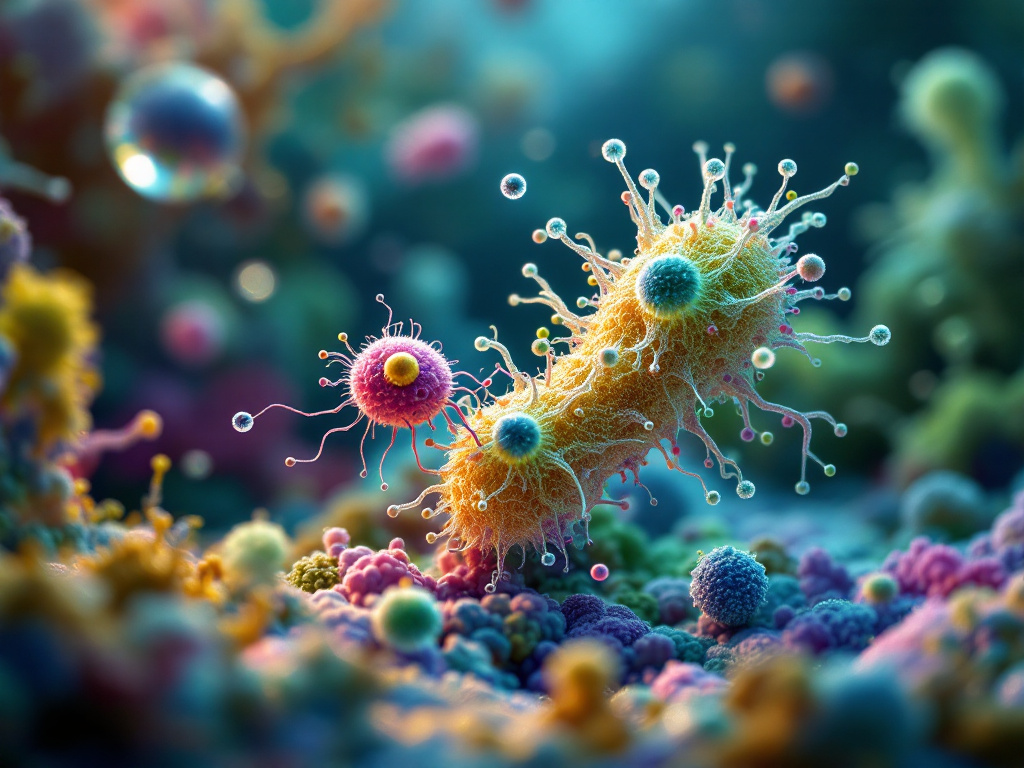
Newly Discovered Bacteria Parasitize Ancient Methanogenic Archaea
**Researchers from AIST, in collaboration with JAMSTEC, Hokkaido University, and Tohoku University**, have successfully cultivated a unique ultrasmall bacterium, named *Minisyncoccus archaeiphilus*. This bacterium is *noteworthy* because it parasitizes methanogenic archaea, specifically the host archaeon *Methanospirillum hungatei*. _This marks a groundbreaking discovery since it's the first time such bacteria have been identified and classified as both a new species and genus._ Methanogenic archaea are pivotal in *anaerobic wastewater treatment systems*, and the discovery of a bacterial parasite affecting them could have significant implications. These archaea diverged evolutionarily around 4 billion years ago and show profound biological differences from bacteria in terms of cell membrane compositions, genetic information, and other biochemical characteristics. The newly found bacterium displays a limited host range, as it attaches only to specific sites on its host archaeon, thereby inhibiting its growth. This study opens up new frontiers in understanding microbial interactions and evolution.